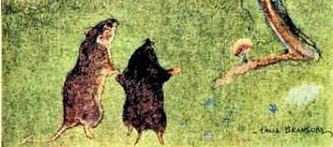I have been slowly re-reading Ted Hughes’ series of BBC “programmes” on poetry. They were designed for teen and tween listeners. Yeah, right. Hughes’ book is the only text you need for a life built around poetry. For example, I am reading a chapter now called “Capturing Animals”. He argues that
I think of poems as a sort of animal. They have their own life, like animals, by which I
mean that they seem quite separate from any person, even from their author, and nothing can be added to them or taken away without maiming and perhaps even killing them.
And they have a certain wisdom. They know something special . . . something perhaps which we are very curious to learn. Maybe my concern has been to capture not animals particularly and not poems, but simply things which have a vivid life of their own, outside mine.
He inspired me to look back into my own life into a world that now has a vivid life of its own: capturing snappers and poems.
Here is the poem and what follows is the GoogleNotebookLM AI generated conversation. I find them helpful. One thing they remind me of is that the poem is kinda raw and uncooked, but I want to share it anyway. I have a copy in my writing notebook and will carry on with it. It might make a good story for “The Moth”.
Capturing Poems
I remember capturing snapping turtles
when I was a kid.
I fattened these 50 pound dinosaurs in a sand pit,
gnarly meat for turtle soup.
Dangerous soup.
Hell, they are called snappers.
Why do this?
I wanted to be outside
and in swamps.
I could have been gathering ginseng
or fishing for lunker catfish in the Ohio River
and gotten the same payoff,
but ..
I needed a dangerous hobby,
one where I might lose a finger
or drown in a swamp
Or have to pull off
A slither of leeches on the regular.
That wasn’t the plan,
but it might have been
the net of my intent
when I became a poet and wrote poems.
A dangerous hobby
that was what my plan became
and this is how poetry becomes.
You capture the biting writhing beast
by its dinosaur tail
and you avoid the snap
that follows the hiss
that takes and takes
(and here’s the secret)
then you eat it.
The conversation:

Permalink //
Hi Terry. I just stopped by to see what you were writing about recently.
Capturing words and thoughts and organizing them into poems, then sharing them. That’s dangerous. You’ve a lot of courage to keep doing this for so many years.